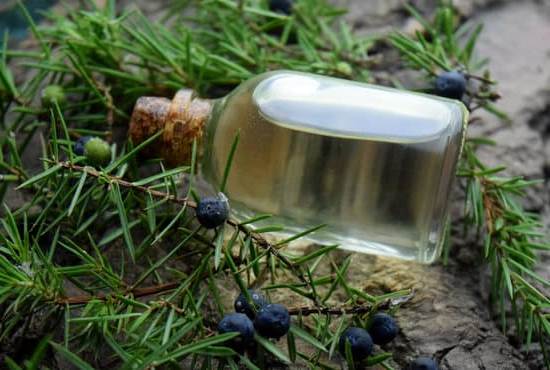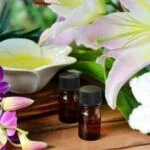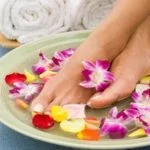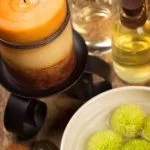Aromatherapy has been used for centuries as a natural healing remedy, but how much scientific evidence proves aromatherapy works? Aromatherapy is the use of essential oils to promote physical and psychological well-being.
While it has a rich history and widespread use, there is ongoing debate about its effectiveness in modern medicine. In this article, we will explore the origins of aromatherapy, the role of essential oils, scientific research on its efficacy, and the benefits it offers for mental and physical health.
The practice of aromatherapy can be traced back to ancient civilizations such as Egypt, China, and India. The use of aromatic plant extracts for medicinal purposes has been documented throughout history. Over time, aromatherapy has evolved into a holistic approach to wellness that focuses on the powerful scents of essential oils and their impact on the body and mind.
Essential oils play a central role in aromatherapy, as they are derived from various parts of plants and contain unique chemical compounds that contribute to their therapeutic properties. These potent oils can be diffused, inhaled, or applied topically to harness their potential health benefits. The diverse range of essential oils offers different aromatic profiles and healing properties that are believed to interact with the body’s chemistry when used appropriately.
History and Origins of Aromatherapy
Aromatherapy has a rich history that dates back thousands of years. The use of aromatic plants and essential oils for healing and religious purposes can be traced back to ancient civilizations such as the Egyptians, Greeks, and Romans. These cultures recognized the powerful effects of aromas on the mind, body, and spirit, laying the foundation for what we now know as aromatherapy.
The practice of using essential oils for therapeutic purposes continued through the Middle Ages and Renaissance period, with essential oils being used to treat various ailments and promote overall well-being. However, it wasn’t until the 20th century that modern aromatherapy as we know it today began to take shape.
In 1937, French chemist René-Maurice Gattefossé coined the term “aromatherapy” after accidentally discovering the healing properties of lavender essential oil when he applied it to a burn on his hand. This led him to further research the benefits of essential oils, ultimately paving the way for modern scientific studies and research on aromatherapy.
- Aromatherapy in ancient civilizations
- Use of essential oils in healing and religious practices
- Evolution of modern aromatherapy
- Contribution of René-Maurice Gattefossé
The Role of Essential Oils in Aromatherapy
Aromatherapy is a holistic healing treatment that uses natural plant extracts, known as essential oils, to promote physical and mental well-being. These essential oils are carefully extracted from plants and are believed to possess various therapeutic properties.
They can be used in a variety of ways, including inhalation, massage, and baths. The use of essential oils in aromatherapy is based on the idea that each oil has its own unique properties that can produce specific effects on the body and mind.
The role of essential oils in aromatherapy is crucial, as they are the main tools used in this practice. Essential oils are highly concentrated extracts derived from different parts of plants such as leaves, flowers, roots, and seeds.
These oils contain the natural aromatic compounds that give plants their distinctive fragrance and offer various health benefits when used in aromatherapy. Some popular essential oils used in aromatherapy include lavender for relaxation and stress relief, peppermint for energy and mental clarity, and tea tree for its antibacterial and antiviral properties.
Incorporating essential oils into aromatherapy practices involves understanding their specific properties and therapeutic effects. It is important to note that while many people find aromatherapy beneficial for certain health issues or conditions, there is ongoing debate regarding how much scientific evidence proves aromatherapy works.
Some studies have shown positive results in areas such as reducing anxiety and improving sleep quality, but more research is needed to fully understand the mechanisms behind these effects and to determine the effectiveness of aromatherapy for different health concerns. Despite this controversy, many individuals continue to find relief and wellness through the use of essential oils in their daily lives.
- Lavender: known for relaxation and stress relief
- Peppermint: used for energy and mental clarity
- Tea tree: valued for its antibacterial and antiviral properties
Scientific Studies and Research on Aromatherapy
Aromatherapy has been a subject of scientific interest for many years, with researchers seeking to understand how and why it may have therapeutic effects. Several studies have been conducted to investigate the potential benefits of aromatherapy, especially in terms of mental and physical health. These studies have looked into the use of essential oils, the primary components of aromatherapy, and their impact on various conditions.
One area of research that has gained attention is the use of aromatherapy for reducing stress and anxiety. A number of studies have suggested that certain essential oils, such as lavender and chamomile, may have a calming effect on the mind and body when used in aromatherapy practices. Additionally, there is evidence to support the use of peppermint oil for alleviating headaches and improving cognitive function.
In recent years, there has also been growing interest in the potential anti-inflammatory and antimicrobial properties of essential oils used in aromatherapy. Research has shown that oils such as tea tree oil and eucalyptus oil may possess these properties, which could make them valuable for supporting overall health and wellness.
While more research is needed to fully understand how these essential oils work at a molecular level, the findings so far are promising in demonstrating the potential efficacy of aromatherapy.
| Study | Findings |
|---|---|
| A study on lavender oil | Reduced anxiety levels in patients awaiting dental treatment |
| Research on tea tree oil | Demonstrated antimicrobial activity against certain bacteria and fungi |
| Evaluation of peppermint oil | Shown to improve cognitive performance in a study involving students |
The Benefits of Aromatherapy
Aromatherapy has long been believed to have a range of mental and physical health benefits, but the question remains: how much scientific evidence proves aromatherapy works? Research has shown that certain essential oils used in aromatherapy have the potential to improve mood, alleviate stress and anxiety, promote relaxation, and even aid in the relief of certain physical ailments. However, while some studies have yielded promising results, more research is needed to definitively prove the efficacy of aromatherapy.
One of the key mental health benefits associated with aromatherapy is its ability to reduce stress and anxiety. Aromatherapy has been found to have a calming effect on the mind, with certain essential oils such as lavender and chamomile showing promise in reducing anxiety levels. Additionally, some studies have indicated that aromatherapy may be effective in improving sleep quality and reducing symptoms of depression.
On the physical health front, aromatherapy has been suggested to have pain-relieving properties for conditions such as migraines, headaches, and muscle soreness. Certain essential oils like peppermint and eucalyptus are believed to possess analgesic properties that can help alleviate discomfort when applied or inhaled. However, it is important to note that while these findings are promising, more conclusive evidence is needed before claiming definitive health benefits.
In summary, while there is some scientific evidence supporting the mental and physical health benefits of aromatherapy, more rigorous research is required to fully understand its effects. However, many individuals continue to find relief from various ailments through the use of essential oils in their daily lives.
| Mental Health Benefits | Physical Health Benefits |
|---|---|
| Aromatherapy can reduce stress and anxiety | Some essential oils possess pain-relieving properties |
| Promotes relaxation and improved sleep quality | May alleviate symptoms of migraines and headaches |
| Shows promise in reducing symptoms of depression | Believed to help with muscle soreness |
Aromatherapy in Modern Medicine and Healthcare
Despite the centuries-old practice of aromatherapy, its use in modern medicine and healthcare is a relatively recent phenomenon. Healthcare professionals are increasingly recognizing the potential benefits of aromatherapy in treating various health conditions. Aromatherapy is now being used in hospitals, clinics, and other healthcare settings to complement traditional medical treatments.
A growing body of scientific research has explored the efficacy of aromatherapy in managing chronic pain, reducing anxiety and depression, improving sleep quality, and enhancing overall well-being. For example, a study published in Pain Management Nursing found that inhaling lavender essential oil significantly reduced perceived pain intensity in patients undergoing a surgical procedure.
Additionally, a systematic review published in the Journal of Korean Academy of Nursing showed that inhaling essential oils derived from citrus fruits can effectively reduce stress and anxiety levels.
As modern medicine continues to grapple with rising rates of chronic diseases and mental health disorders, there is an increasing need for alternative therapies that are safe, accessible, and cost-effective. Aromatherapy offers a promising avenue for addressing these challenges, especially when used as part of an integrated approach to healthcare. However, more rigorous scientific studies are needed to establish the safety and effectiveness of aromatherapy across different patient populations and healthcare settings.
Criticisms and Controversies Surrounding Aromatherapy
Lack of Large-Scale Clinical Trials
One of the main criticisms surrounding aromatherapy is the lack of large-scale clinical trials to prove its efficacy. While there have been numerous studies conducted on the use of essential oils for various health conditions, many of these studies are small-scale and have limitations in terms of sample size and research methodology. This has led some skeptics to question how much scientific evidence proves aromatherapy works.
Placebo Effect and Subjectivity
Another point of controversy is the role of the placebo effect in aromatherapy. Critics argue that the reported benefits of aromatherapy may be attributed to a placebo effect, where individuals believe they are experiencing positive effects due to their expectation of improvement. Additionally, since the perception of scent is subjective, it can be challenging to measure the actual impact of essential oils on individuals objectively.
Potential Risks and Safety Concerns
There are also concerns surrounding the safety of using essential oils in aromatherapy. Some essential oils can be toxic if ingested or used improperly, and there have been reports of adverse reactions in certain individuals. As a result, there is a need for more research to determine the safety parameters and potential risks associated with the use of essential oils in aromatherapy practices.
Tips for Incorporating Aromatherapy Into Your Daily Routine
Aromatherapy has been used for centuries as a natural and holistic approach to improving overall well-being. If you are interested in incorporating aromatherapy into your daily routine, there are several easy and effective ways to do so.
Diffusing Essential Oils
One of the most popular and convenient methods of using essential oils is through diffusion. A diffuser releases essential oil molecules into the air, allowing you to inhale the aroma and experience its therapeutic benefits. You can choose from a variety of essential oils based on your specific needs, such as lavender for relaxation or peppermint for an energy boost.
Aromatic Bathing
Adding a few drops of essential oils to your bathwater can elevate the experience of taking a bath. Not only will the aromas help you relax, but they can also provide various physical benefits. For example, adding eucalyptus oil to your bath can help ease respiratory issues, while adding chamomile oil can soothe sore muscles and joints.
DIY Aromatherapy Products
If you enjoy getting creative, consider making your own aromatherapy products using essential oils. You can create personalized room sprays, linen sprays, body scrubs, or massage oils by blending essential oils with carrier oils or distilled water. This allows you to customize the scents and tailor them to your specific preferences and needs.
Overall, incorporating aromatherapy into your daily routine is a simple and enjoyable way to experience its potential benefits for both mental and physical health. By exploring different methods of using essential oils, you can find what works best for you and enhance your well-being in a natural and holistic way. While there is still ongoing research on the efficacy of aromatherapy, many people find it to be an effective addition to their self-care practices.
Conclusion
In conclusion, the question of how much scientific evidence proves aromatherapy works remains a topic of debate. While there have been numerous studies and research conducted on the efficacy of aromatherapy, the results are still inconclusive. Some studies have shown positive effects on mental and physical health, while others have found little to no significant impact. This leaves many experts and healthcare professionals cautious about fully endorsing aromatherapy as a proven treatment.
Despite the lack of concrete scientific evidence, many individuals continue to find relief and benefits from incorporating aromatherapy into their daily routines. Whether it’s through diffusing essential oils, using them in massages, or adding them to bath products, people report feeling calmer, more relaxed, and experiencing improved wellness. This anecdotal evidence cannot be discounted, but it also cannot serve as a replacement for rigorous scientific research.
As we look to the future of aromatherapy in modern medicine and healthcare, it is crucial that further studies are conducted to determine its true efficacy. By continuing to explore the potential benefits of essential oils and their impact on mental and physical health, we can gain a better understanding of how aromatherapy works and its potential role in holistic wellness practices.
In the meantime, individuals interested in incorporating aromatherapy into their daily routine should consult with healthcare professionals and explore safe ways to do so.
Frequently Asked Questions
Is Aromatherapy Proven to Work?
Aromatherapy is a widely used practice, but its effectiveness is still a subject of debate. While some studies suggest that certain essential oils may have therapeutic benefits, more research is needed to definitively prove its efficacy.
What Does the Research Show About the Effects of Aromatherapy?
Research on the effects of aromatherapy has shown mixed results. Some studies indicate that certain essential oils can have positive effects on mood, stress, and even pain management. However, more rigorous scientific research is needed to draw conclusive findings about its overall impact.
Is Essential Oils Science or Pseudoscience?
The field of essential oils can be considered both science and pseudoscience. While there is some scientific evidence supporting the benefits of certain essential oils, there are also many claims in the industry that lack empirical evidence or sound scientific backing.
As such, it’s important to approach essential oils with a critical eye and rely on reputable sources for information.

Are you looking for a natural way to improve your health and wellbeing?
If so, aromatherapy may be the answer for you.





